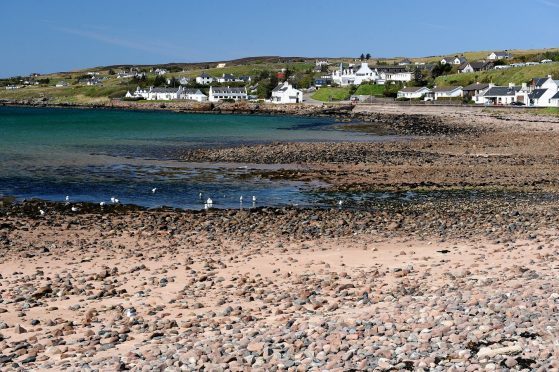A Highland politician has claimed that Scottish Water’s plans to remove the filtration system from a waste treatment plant could lead to pollution on some of the north’s best beaches.
The utility company has denied there would be a negative impact if the change was made to the treatment works at Gairloch in Wester Ross.
But Highlands and Islands Green MSP John Finnie has lodged a formal objection against the move with the Scottish Environmental Protection Agency (SEPA), urging the latter not to grant permission.
Mr Finnie has claimed that the proposal to replace the current membrane filter system with simple septic tanks would result in bacteria from human waste, such as E.coli, being pumped into the loch.
And he argued Scottish Water’s own studies showed the bacteria would make the waters and beaches unfit for bathing up to nearly two miles from the outflow – an area which includes the beaches at Gairloch and Big Sand.
Mr Finnie added: “Big Sand was recently voted the best beach in the Highlands, with Gairloch coming in fourth.
“These beautiful beaches are well-used by tourists and locals alike for swimming, snorkelling, kayaking and other watersports.”
He said the community was trying to gain designated bathing status for its beaches. And he claimed downgrading the treatment works would endanger the health of bathers, the local economy and the quality of life in the area.
A Scottish Water spokesman responded that protecting the environment was always a top priority for the firm.
He said: “We are planning £800,000 of investment to improve the reliability and sustainability of Gairloch Waste Water Treatment Works.
“The facility will meet the current environmental discharge quality standards – which are required of us – and would be installed in a manner that would allow additional treatment to be added if required in the future.”
He added that the company understood the community’s concerns and was aware of their desire to gain bathing status for their beaches.
He said: “Scottish Water will continue to work closely with SEPA to ensure that the waste water treatment works meets required standards.
“In the event of the waters being given bathing water status, we would take the necessary steps to ensure compliance with the relevant standards.
“We will also continue to liaise with the community.”
